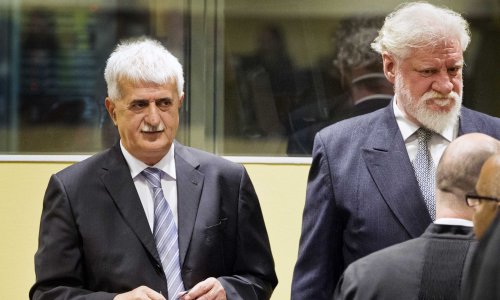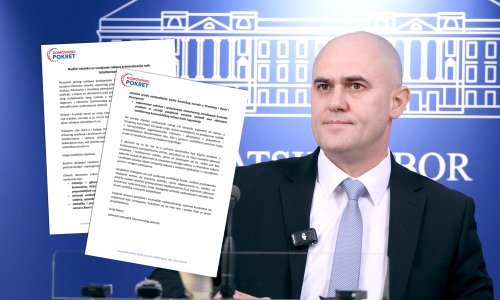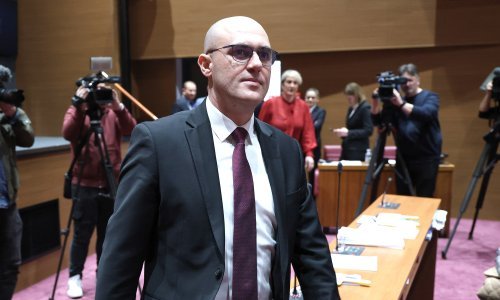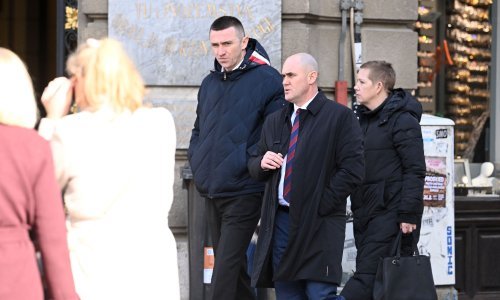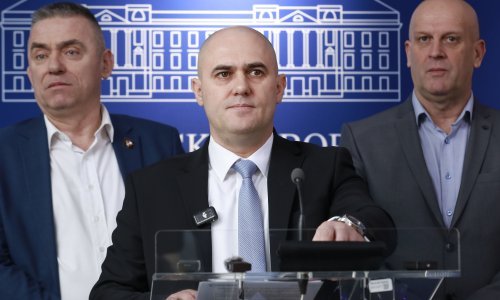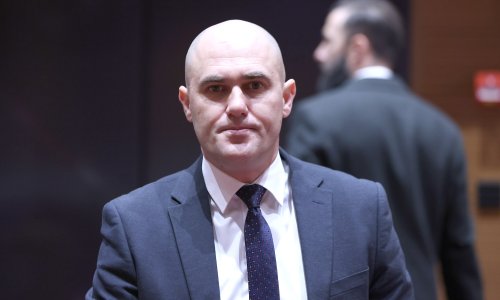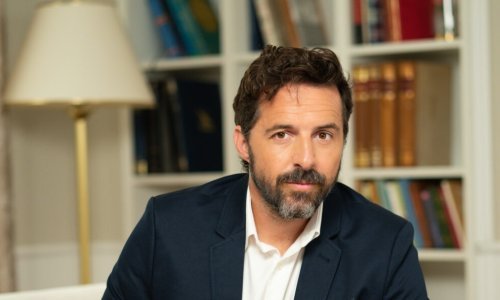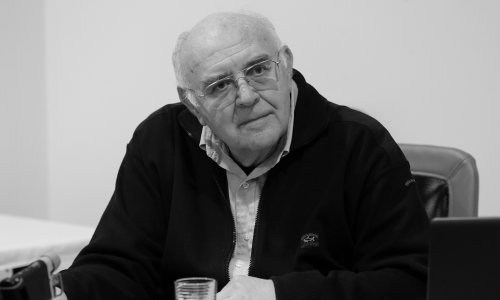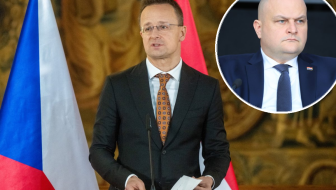Michael Karnavas, a defence attorney for a former Prime Minister of Herceg Bosna, Jadranko Prlic, said in his closing statement in the Hague trial of six Bosnian Croat political and military leaders on Monday that prosecutors in the case were fitting the facts to their needs and interpreting them selectively.
The prosecution is using a Pocrustean bed approach to facts in order to convict Prlic, Karnavas said, telling the trial chamber to make its ruling by viewing the case in its entirety, with all 9,000 documents and all evidence contained on 52,000 pages of trial records, instead of applying the prosecution's selective approach to the facts.
Leaders of the former self-styled Croat Community of Herceg Bosna - Prime Minister Jadranko Prlic, Defence Minister Bruno Stojic, HVO (Bosnian Croat Defence Council) generals Slobodan Praljak and Milivoj Petkovic, the commander of the HVO military police, Valentin Coric, and the head of the commission for the exchange of prisoners of war, Berislav Pusic - were charged with crimes against humanity committed as part of a joint criminal enterprise against Bosniaks and other non-Croats in areas of Bosnia and Herzegovina which they wanted to annex to Croatia.
Completing the presentation of their closing statements last Thursday, the prosecutors asked that the six political and military officials be found guilty and given sentences ranging from 25 to 40 years in prison.
Lead prosecutor Kenneth Scott asked that Prlic, Stojic, Praljak and Petkovic be sentenced to 40 years' imprisonment, that Coric be given 35 years in prison and Pusic 25 years.
The prosecution said that it had proven the involvement of the accused in the joint criminal enterprise aimed at removing Bosniaks and other non-Croats from Herceg Bosna and annexing it to Croatia with the aim of creating 'Greater Croatia'. The joint criminal enterprise, they said, was headed by the first Croatian President Franjo Tudjman, and the expulsion project and the attempt to divide Bosnia and Herzegovina was carried out in close cooperation between Herceg Bosna leaders and the government in Zagreb, the main instrument being HVO units that did the job on the ground.
Comparing the prosecution's closing statement with the trial of Socrates, Karnavas called on the trial chamber to judge his client by the truth and not by the verbal skills of the prosecutors who delivered dramatic closing statements last week.
He said that the overall evaluation of all evidence must result in the trial chamber reaching conclusions other than those offered by the prosecution.
Karnavas questioned not only the credibility of witnesses for the prosecution who spoke of their impressions or evidence learned of indirectly, but also the interpretations of Prlic's actions as offered by witnesses for the prosecution, citing as an example Prlic's insufficient knowledge of English as a possible reason for misunderstandings.
Commenting on the prosecution's conclusion that statements by witnesses for the defence should be viewed through the fact that most of those witnesses were Croats, Karnavas said witnesses must not be evaluated on the basis of their religion or ethnic background, but on the basis of their statements.
We ask that you evaluate all witnesses in the same way, Karnavas said, adding that the prosecution was trying to compromise witnesses for the defence as nationalists.
The defence attorney also dismissed claims by the prosecution that the accused had tried to shift responsibility to other people, saying that Prlic stood behind the documents he had signed.





